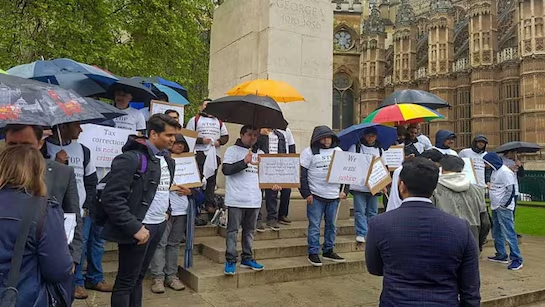Imagine building a life from scratch in a country you call home—making friends, working, contributing to the community only to be told suddenly that you must leave. This is the harsh reality faced by an Indian man who was deported from the UK after living there for 30 years. His story sheds light on the profound human consequences behind immigration laws and policies often discussed only in abstract terms.
For three decades, this man was part of the social fabric of the UK. He worked hard, made friends, and became embedded in his community. His life was intertwined with the everyday realities of the country. However, despite this long-term residence, the shadow of immigration bureaucracy and legal hurdles loomed large.
The day of his deportation was marked by a poignant and emotional farewell at the airport, where friends gathered to see him off. Their heartfelt goodbyes and visible distress highlighted the human cost behind deportation decisions. These are not just statistics or legal cases; these are individuals with families, histories, and dreams.
His story exposes deeper questions about the fairness and compassion of immigration laws. It prompts us to consider how people who have lived in a country for decades, contributed to society, and formed social bonds should be treated. It also brings to the forefront the emotional trauma caused by forced uprooting, especially when it is unexpected and after such a lengthy stay.
This case prompts public discussion on balancing the enforcement of immigration rules with empathy and humanity. It challenges policymakers to rethink how laws impact people’s lives and consider pathways that recognize long-term ties to the country.
Behind every deportation headline lies a human story stories of resilience, heartbreak, and hope. The Indian man experience reminds us that immigration policies are not just about borders and documents;they are about people’s lives, dignity, and the communities they call home.




